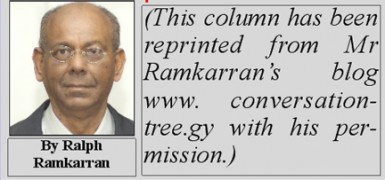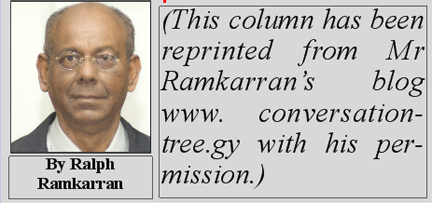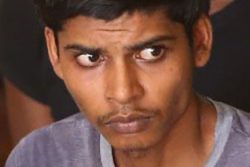The Guyana Bar Association (GBA) had its annual general meeting on Wednesday last and elected a new Bar Council, the name of its executive. The large turn-out of lawyers at the meeting was a positive indication of reviving interest. The nominees for office, clearly identified beforehand, were unanimously elected, underlining the unity which prevailed and which was expected to continue.
For the first time in many years a senior lawyer, the distinguished Robin Stoby, Senior Counsel, the Secretary of the GBA in the 1980s, agreed to serve and was elected as First Vice President. It was a generous commitment of time by Mr Stoby, as well as by Mr Rajendra Poonai, a leading lawyer with decades of practising experience, who was elected to the Bar Council, to an executive comprising the younger generation of lawyers, although most of them have had more than ten years of practice. The dominance of ‘youth’ in the Bar Council, who have wisely sought out the guidance of the ‘seniors,’ appear to have now set the stage for the rejuvenation of the GBA.
There are many reasons for the decline in support by lawyers of the GBA over the past two decades. While that discourse must be reserved for another time, it should be noted that from the mid-1970s to the early 1990s, the GBA was one of the most dynamic civil society organisations in Guyana. Its dominant role in those years was the defence of fundamental rights and civil liberties, which had been under serious assault for many years. As these challenges declined after 1992, and as generational changes were taking place in the profession, the GBA struggled for an agenda.
The task of this Bar Council would be to mobilise young lawyers and reclaim the interest of senior lawyers in order to rebuild the dynamism of the GBA to deal with the enormous challenges faced by the legal profession, the administration of justice and negative public perceptions. Over and above all else, the GBA needs to service the needs of its members and of the legal profession, protect the interests of the public who engage with the profession, support the judiciary, maintain vigilance over the constitutional rights and civil liberties of citizens and defend those against state encroachment. The latter is not a political task, as many may believe. It is a civic duty and responsibility. Lawyers are required, by virtue of their calling, to defend the citizen against the state ‒ any state, led by any political party, or coalition of parties. The violation of civil or constitutional rights by the state does not always, or necessarily, have a political origin.
Canadian assistance through the Caribbean Court of Justice has played a decisive role in the recent implementation of new, transformative, Civil Procedure Rules. These in turn have opened up the possibility of continuing legal education for lawyers, which the judiciary is actively considering. In the near future lawyers would have to participate in continuing education exercises to qualify annually for an annual practising certificate. This would have to go along with compulsory membership of the GBA by lawyers in private practice as in other countries and as with the medical profession in Guyana. The quality of lawyers and resources for the GBA are therefore going to improve in the coming period and the role of the GBA will be enhanced. In these circumstances, the GBA has to prepare itself for these new, additional, challenges.
The letters appearing in the press from members of the public about lawyers are usually critical. Many of them complain about lawyers collecting fees from clients, not appearing for their cases and being unwilling to refund their fees. Hence a reputation for dishonest practices and neglect of client’s interests.
The Legal Practitioners Committee (LPC) is the statutory body which hears complaints against lawyers. It comprises fifteen lawyers, twelve of whom are appointed by the Chancellor. Three state officials from the Attorney General’s Chambers are ex-officio members. Where, upon a complaint by a member of the public, a case of misconduct has been established against a lawyer after a hearing, the LPC reports its findings to the Judges of the Court. It is for the Judges of the Court to decide what further steps should be taken, if any. While I am aware that the LPC is very active and that there are no shortages of complaints against lawyers, which are in fact dealt with, the fact is that no lawyer has been tried for misconduct by the judges for many decades. This is clearly one of the reasons why the public lacks confidence in the system of discipline of lawyers.
The GBA needs to advocate for the system of discipline to be transformed. The LPC itself, like the Medical Council, should have the power to impose sanctions against lawyers. There is an existing right of appeal. Such a system would go a far way towards eliminating misconduct by lawyers and in generating the confidence of the public in the legal profession.










